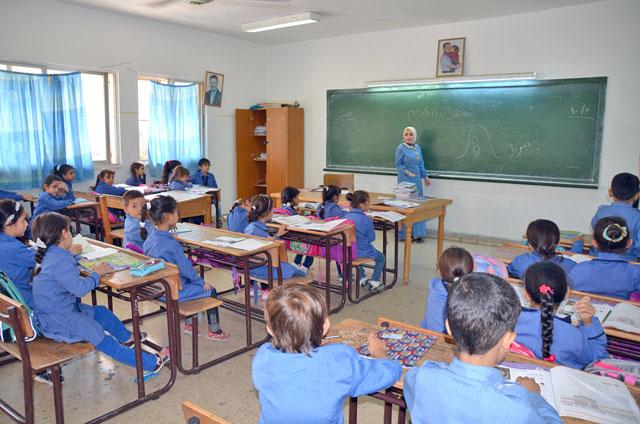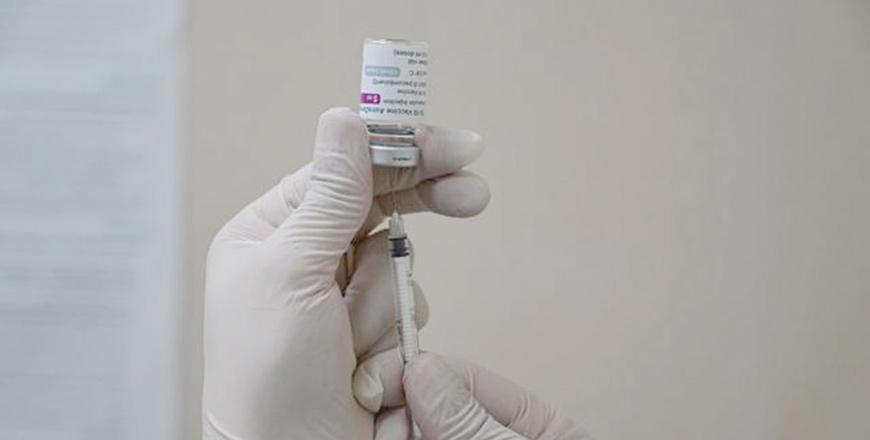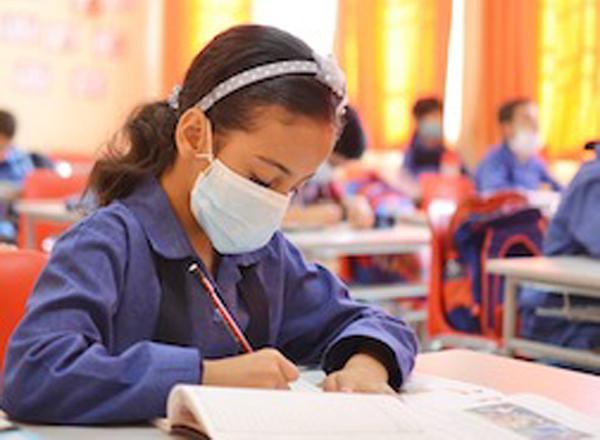You are here
World Bank approves $100m project to support Jordan’s education sector amid COVID-19
By JT - Jun 30,2020 - Last updated at Jun 30,2020
AMMAN — The World Bank (WB) on Tuesday approved a $100-million project to support the Jordanian government's efforts in addressing educational challenges resulting from the COVID-19 pandemic and expanding access to pre-primary education, while reforming student assessment, including transitioning to competency-based digital Tawjihi (general secondary education certificate examination).
The new project represents additional financing to the $200-million Education Reform Support Programme, approved back in December 2017, which aimed to expand access to early childhood education and improve student assessment and teaching and learning conditions for Jordanian children and Syrian refugee children, the Jordan News Agency, Petra, reported.
“The World Bank is committed to supporting Jordan to address the multi-faceted impact of the COVID-19 outbreak, including a potential loss for today’s students of 0.6 years of schooling adjusted for quality,” said Saroj Kumar Jha, the World Bank Mashreq regional director.
“The World Bank has already mobilised technical and financial resources to help Jordan strengthen its health sector response and provide emergency cash transfers to poor households who have lost their source of income. This additional financing constitutes a further investment in human capital to allow Jordan to accelerate learning by building a more equitable and resilient post-COVID education system,” he said.
The additional financing will support the government’s aim to enrol all five-year-old children in Jordan in school beginning with the academic year 2020-2021. The project will also support additional interventions to respond to the COVID-19 pandemic, in particular, to ensure the sustainability of distance learning innovations that were introduced as a response to school closures and to guarantee minimum health and safety standards that would provide for a safe return to school, Petra reported.
“Historically, Jordan has made great progress in increasing access to education and gender parity and over the past few years the government has been focusing on improving education quality and further expanding education infrastructure to accommodate for the increased number of students due to the Syrian refugee crisis, and as part of its commitment to leaving no one behind,” said Minister of Planning and International Cooperation Wissam Rabadi.
According to Rabadi, the government has intensified its efforts to strengthen distance learning and create a healthy and safe environment for students at the outset of the COVID-19 pandemic, while continuing to implement reforms to improve education quality and accessibility in the long-term.
“This additional financing comes at the right time to support the government’s efforts in response to COVID-19 and beyond,” he said.
With the advent of the COVID-19 pandemic and the resulting lockdown and school closures, the Ministry of Education responded “swiftly” by switching to distance education in the short term and planning for the medium term, as described in the ministry’s Education During Emergency Plan 2020/22 (EDEP). The EDEP is “fully aligned” with the international direction on preparing for and sustaining the safe reopening of schools, Petra said.
“The additional financing also builds on the results achieved to-date under the parent programme, designed to support the ministry’s overarching Education Strategic Plan 2018-2022 in coordination with several other development partners,” said World Bank Lead Economist and Team Leader Dina Abu-Ghaida.
“Results include support to improving teaching quality and the management of the education system in Jordan,” she noted.
The $100 million additional financing is co-financed by an $18.6-million contribution from the Global Concessional Financing Facility (GCFF). Launched in 2016, the GCFF provides concessional financing to middle-income countries hosting large numbers of refugees at rates usually reserved for the poorest countries.
This additional financing brings the World Bank Group’s total commitments to Jordan to $3.7 billion.
Related Articles
AMMAN — A World Bank (WB) project worth $200 million will help Jordan expand access to early childhood education and improve student assessm
AMMAN — The World Bank (WB) approved on June 16, 2021, $63.75 million in additional financing for the ongoing Jordan COVID-19 Emergency Resp
AMMAN — Schools should be the last sector to close and the first to open to prevent a loss of learning that could impact children for years


















